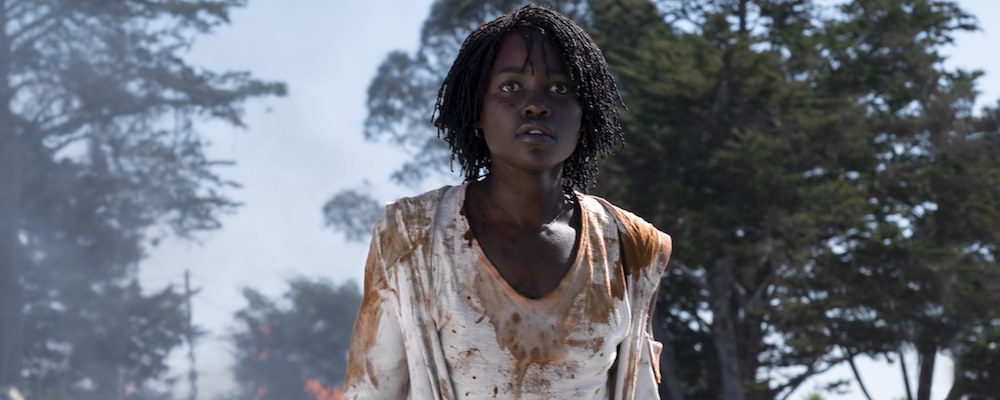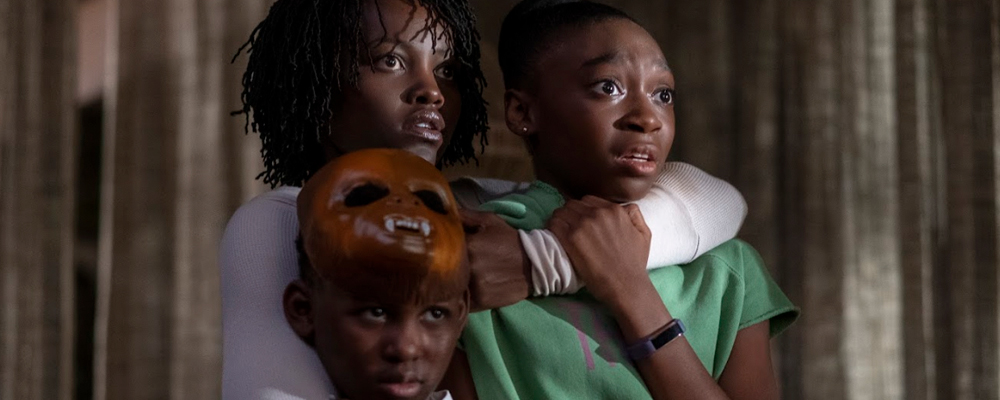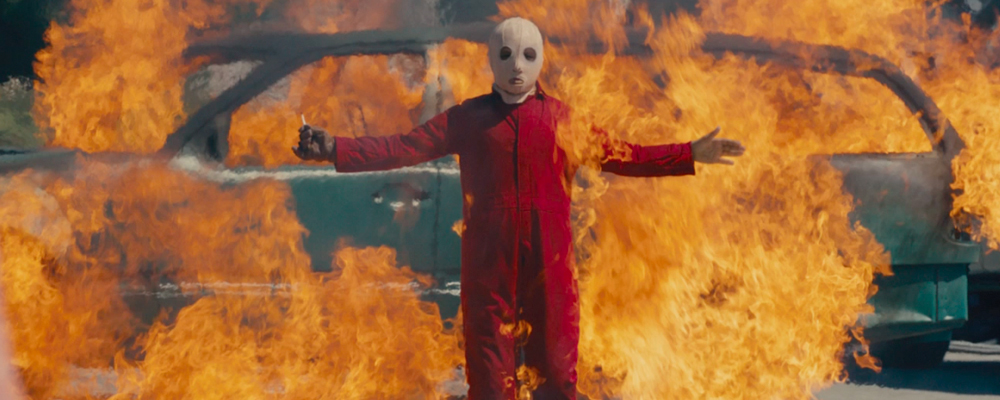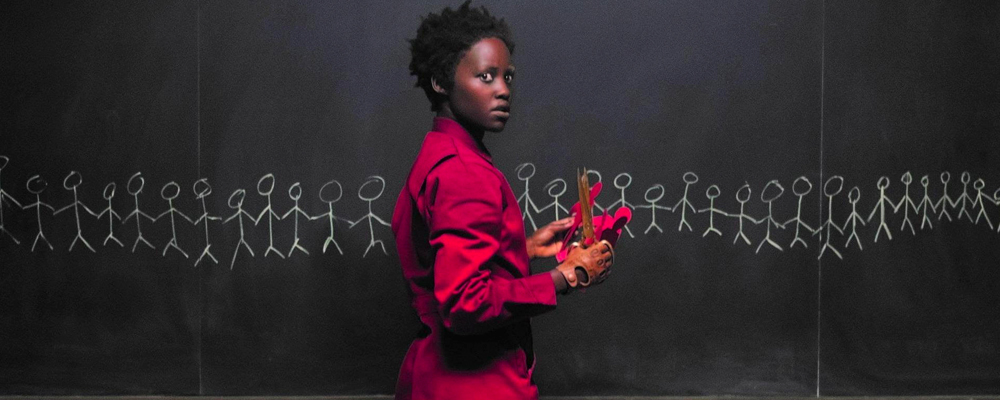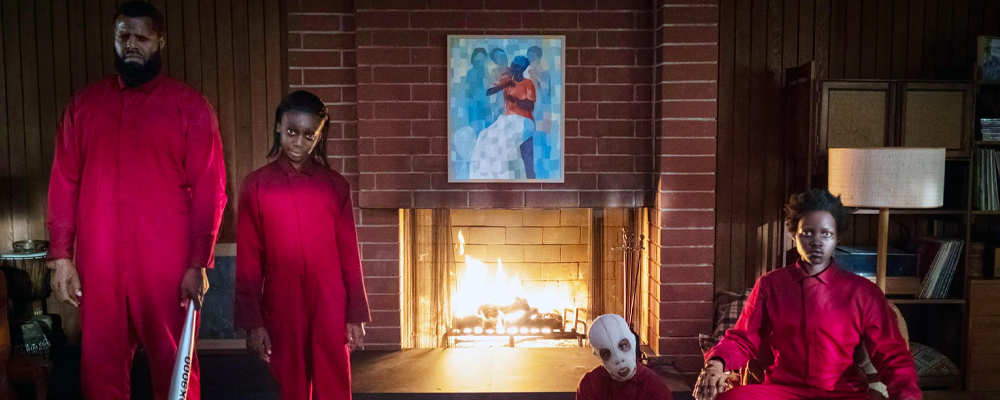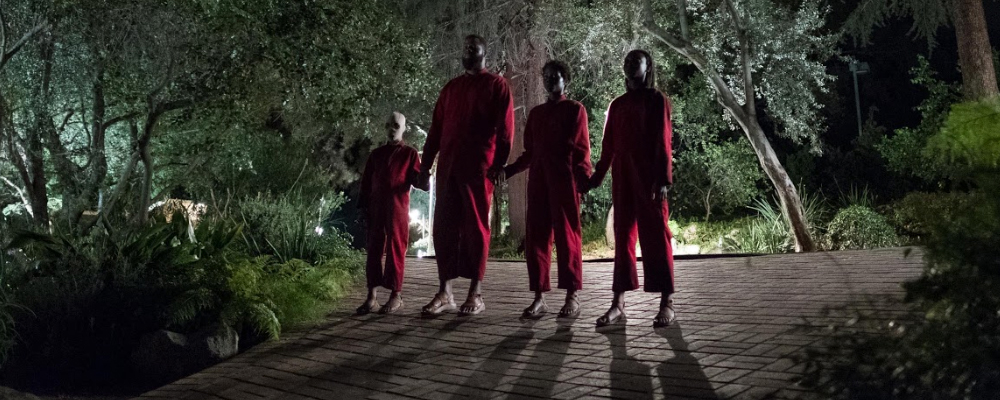Jordan Peele’s ‘Us’ Imagines an Apocalyptic Nightmare for Our Times
Alci Rengifo
Jordan Peele‘s “Us” taps into the suspicion that some of America has gone insane. It is a relentless thriller, a skillful collection of terrors, and a blistering metaphor. Peele made his mark as a writer/director with 2017’s brilliant “Get Out,” a commentary on race relations via thriller which won Peele an Oscar for Best Original Screenplay. It was a perfect example of suspense contained in one setting, dependent on strong performances, and writing with a satirical edge. Now with more resources, Peele goes for broke, still retaining his sense of humor, but combining it with a vision that is bloodier and apocalyptic.
The film opens in 1986, as Hands Across America is being launched and two parents take their daughter (Madison Curry) to the Santa Cruz boardwalk. The night becomes dark and stormy and the girl wanders off into a hall of mirrors where she comes across something unnerving, what appears to be a doppelgänger. Cut to the present and the girl is now Adelaide Wilson (Lupita Nyong’o), wife of cheery Gabe Wilson (Winston Duke), and mother of Jason (Evan Alex) and Zora (Shahadi Wright Joseph). The family is on vacation and Gabe wants to head over to the beach and meet up with old friends, Josh (Tim Heidecker) and wife Kitty (Elisabeth Moss). Adelaide is reluctant to go near the boardwalk, still haunted by her childhood experience. But Gabe insists and they all go and bask in the sunshine, until Jason wanders off and Adelaide’s anxiety returns. Returning home in the evening, everything seems normal until the lights go out and standing outside the Wilson home is another family, also numbering four. They soon force themselves into the house and reveal themselves to be the Wilson’s own doppelgängers, Red, Abraham, Pluto and Umbrae, dressed in red jumpsuits, speaking in grunts or raspy voices. They also have differing features, for example Jason’s twin Pluto wears the pressure mask of a burn victim. What they all carry are golden scissors and a violent hatred for their counterparts. The Wilsons must survive the night, hoping they can escape this surreal nightmare.
“Us” confirms that Peele is indeed more than a one-hit wonder as a filmmaker. He has a unique voice and knows how to be influenced by the greats without imitating them. While being absorbed by this new film’s craft, it’s easy to think about directors like John Carpenter or George Romero, who combined visual style with horror tinged with cultural commentary. Like “Night of the Living Dead,” “Us” basks in its genre but can inspire multiple, deeper interpretations. “Get Out” was a clear satire on race relations in the U.S., with darkly comic, cutting jabs at how racism nestles beneath the surface in the way Americans talk and behave. It was also a superb thriller which boiled down to one man having to escape from a demented white family. “Us” experiments more with straight horror and surrealism. Peele is so good at strong visual ideas that when the Wilsons’s doubles invade the house, we’re not bothered by any obvious questions of logic, we’re gripped by the intensity of the performances . Good horror can rely on a general, unnerving premise. Imagine your deformed twin appearing out of nowhere, determined to kill you. But Peele’s screenplay subtly attaches deeper meaning to the concept. When asked just who they are, Adelaide’s doppelgänger, Red, simply replies with a possessed glare, “we’re Americans.”
What follows are two hours of sustained terror as the Wilsons try to outmaneuver their doubles. Peele and cinematographer Mike Gioulakis craft sequences of deep shadows, where anyone can disappear and threats can emerge out of the bushes. Too crafty to depend on CGI, Peele wants to disturb us with the sheer feeling of sensing danger or having something unsettling right in front of you. Jason will sit with Pluto inside a closet, trapped, as his double lights a match and reveals what’s underneath his pressure mask. A chase between Zora and her double Umbrae through a darkened road will keep you from jogging at night. Peele even knows how to rework old tricks, like the old spider-walk usually reserved for the demon-possessed in horror films, here revived for Pluto. The film builds to a vicious crescendo of bloody clashes, sometimes involving baseball bats and fireplace pokers. Peele can’t help himself and throws in dashes of well-timed humor into the gruesome chaos. Lupita Nyong’o consumes the screen, masterfully playing both the perspiring heroine and her malevolent, absolutely insane double.
It’s not all blood and mayhem however. As the third act kicks in the story widens into an apocalyptic vision worthy of Romero. A homeless man even holds a sign citing the Biblical book of Jeremiah. One suspects that in this mad, surreal story, Peele is attempting to evoke the mood of the times. It would be a crime to spoil the twists, this is a film to enjoy with a clear mind, but it is easy to see this as a cinematic expression of a time when societies feel on the verge of tearing themselves apart. When we talk about two Americas, or the downtrodden versus everyone else, or Brexit, it certainly feels like societies clashing with their own doppelgängers. The red jumpsuit-wearing beings are indeed us, losing our minds. At least that’s one valid interpretation. One explanation Peele gives us by the end may seem traditional, or slightly rehashed, but as metaphor it does what the best films of this kind do, use the genre to go beyond mere shock. Later on the characters of Josh and Kitty, who are hilarious riffs on white middle America, will be used in a way that makes this story much more than about race, but about the country as a whole.
The final shot is darkly satirical greatness, brilliantly disturbing yet with a grin. Peele is building a body of work that will certainly find cult status and endure. Like the greats, he knows how to use his resources to craft something artful, appealing and penetrative. Even some classic songs take on a new identity here (“Good Vibrations” by the Beach Boys becomes an anthem of murder). “Us” is a worthy heir to a great and fun tradition in cinema, where the scares are very bloody, but it’s what they’re actually about that counts. Fair warning, do not go see this movie if you absolutely do not like to have your heart rate quicken.
“Us” opens March 22 in theaters nationwide.

